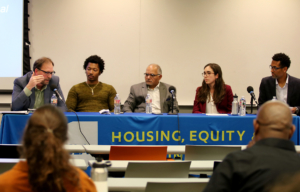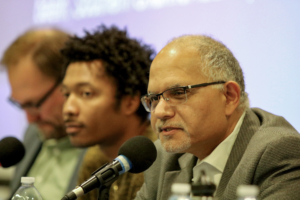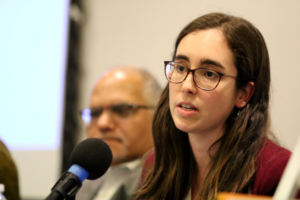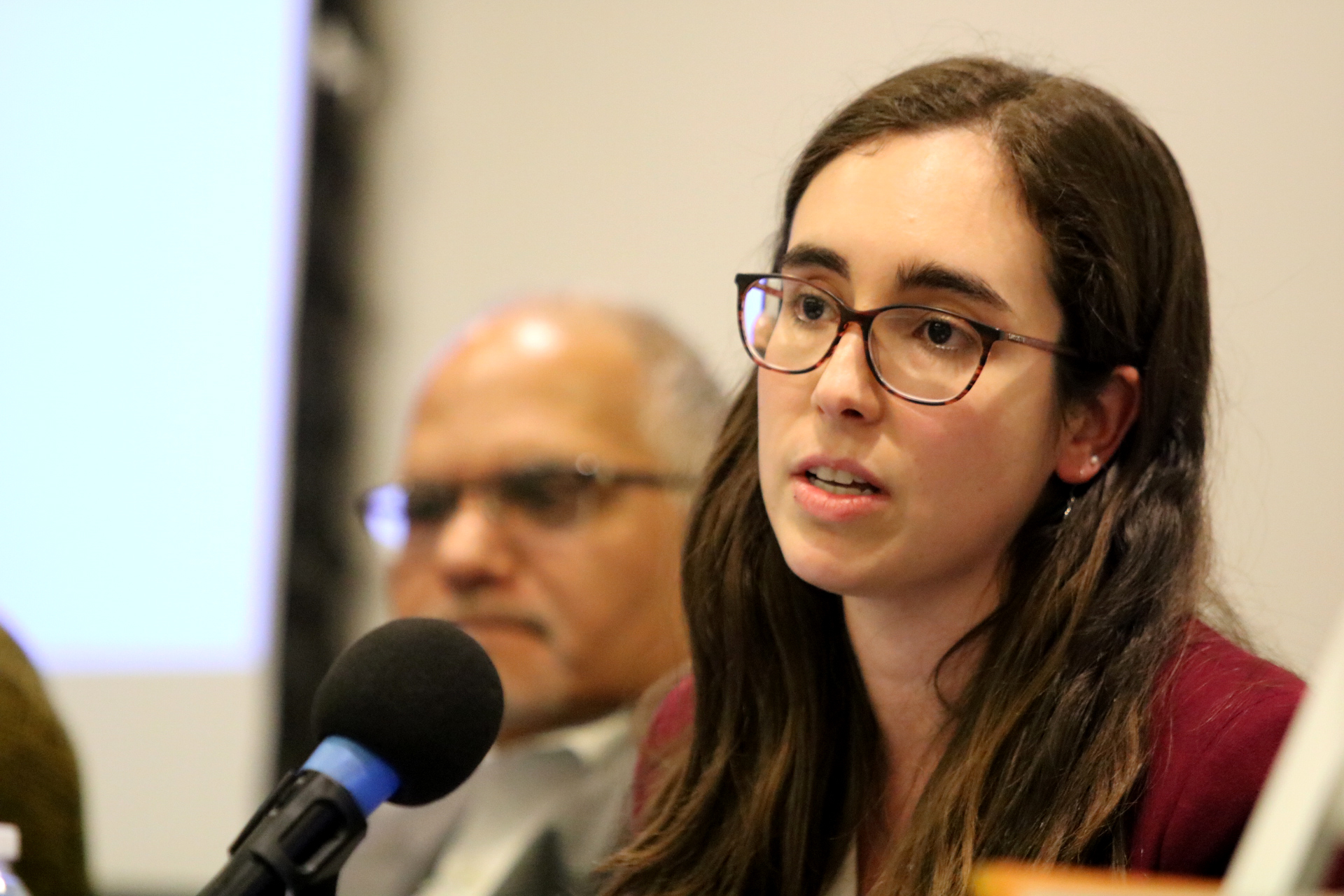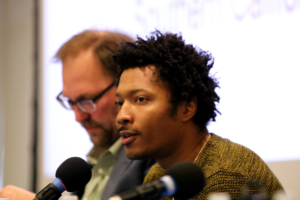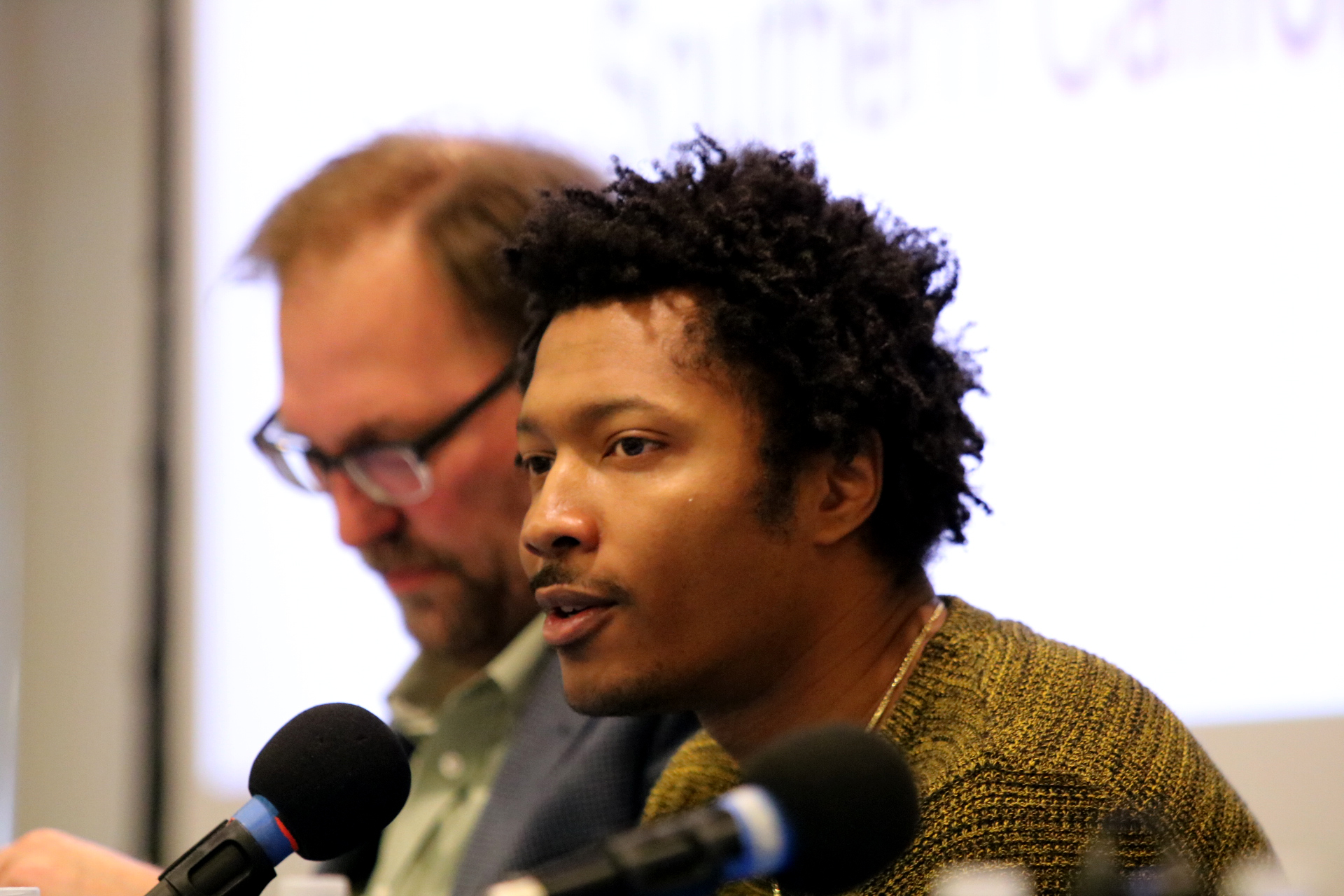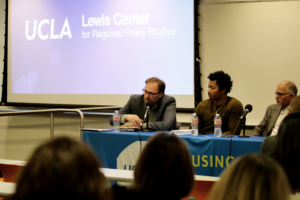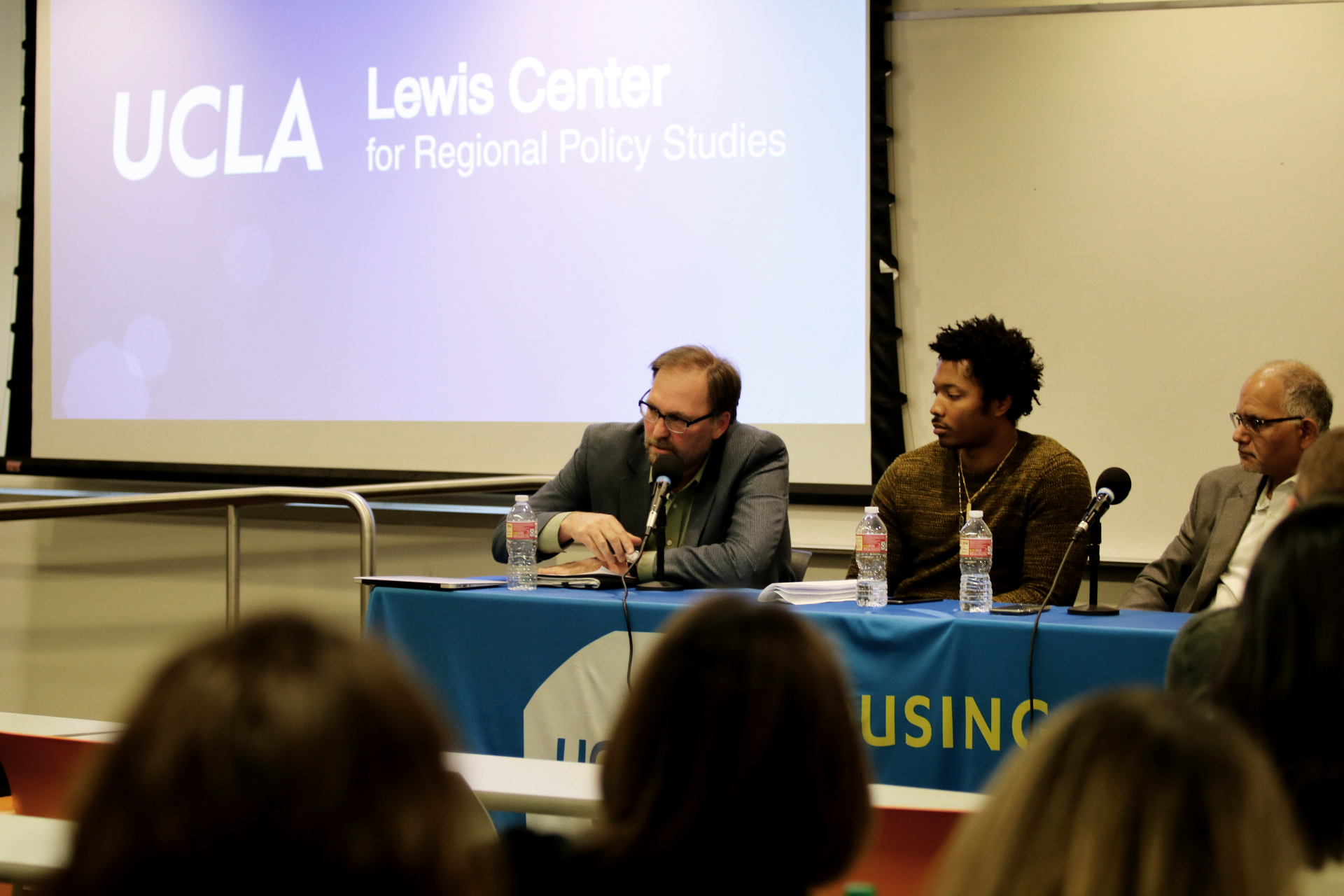By Lauren Hiller
Despite the promise of homeownership enshrined in the American Dream, many people in low-income communities of color remain far from owning their own homes, and this challenge served as a focal point for a recent discussion at UCLA Luskin.
During the Housing, Equity and Community Series event held on Feb. 26, the UCLA Lewis Center for Regional Policy Studies and the UCLA Ziman Center brought together scholars and housing experts to discuss what it would take to ensure access to homeownership for communities historically locked out of it, particularly low-income families. The conversation was moderated by Michael Lens, associate faculty director of the Lewis Center and an associate professor of urban planning and public policy at the UCLA Luskin School of Public Affairs.
Rocio Sanchez-Moyano, a doctoral student at UC Berkeley’s Department of City and Regional Planning, opened the panel by providing context about homeownership in the United States.
According to U.S. Census statistics, homeownership rates have fallen below 50% in Los Angeles County, which is below the current 60% nationwide average and far below rates observed before the Great Recession. These rates are even lower for black and Latino households, and Sanchez-Moyano said this situation is compounded by predatory lending practices by banks that contribute to foreclosure rates in those communities that are among the highest.
Barriers to homeownership are particularly concerning given the benefits that homeownership can confer, Sanchez-Moyano said. These include greater household wealth, better neighborhood safety and quality, lower rates of perceived stress, and increased civic participation.
Discriminatory mortgage terms and higher income volatility among black and Latino households are among the reasons that these families are disproportionately shut out of homeownership opportunities, she said.
Ashraf Ibrahim, office director at the Neighborhood Assistance Corporation of America (NACA), spoke about his experience helping families apply for mortgages. He explained that housing affordability is the largest hurdle faced by families seeking to secure financing to buy homes. A household needs an annual income of at least $125,000 to be able to afford a home in Los Angeles County, Ibrahim noted.
Housing costs are also not rising linearly, said Dorian Young, a mortgage counselor at NACA. As of January 2020, the median sales price of a home in Los Angeles was $744,000, according to Zillow — up from $474,000 as recently as 2015. Housing costs are quickly outpacing income growth in cities such as L.A.
Sanchez-Moyano said this problem is exacerbated by high rents, meaning that lower-income households have less spare income to save up for a down payment.
John Perfitt is executive director at Restore Neighborhoods Los Angeles, a nonprofit that builds and improves homes for low-income families. He said that land values are the largest determinant of housing costs. High land values produce high housing costs, which reductions in construction costs are unable to offset.
Despite these challenges, options exist to increase homeownership rates. Counselors can educate families on practical steps needed to save up for a home, Young said. As a mortgage counselor, he and others in his field also can inform households of other approaches to securing home financing, including leveraging future rent to be collected from multi-family properties as part of the loan process.
Perfitt said that Los Angeles offers a low-income and moderate-income homeownership program that provides down payment assistance. More people sign up every year than there is help to give, however.
Sanchez-Moyano reminded the audience that homeownership has never been attainable for all families. Still, she hopes people will support efforts to make owning a home more accessible, particularly to communities of color, and ensure that “being a renter doesn’t mean being left behind.”
View additional photos from the event in an album on Flickr:


